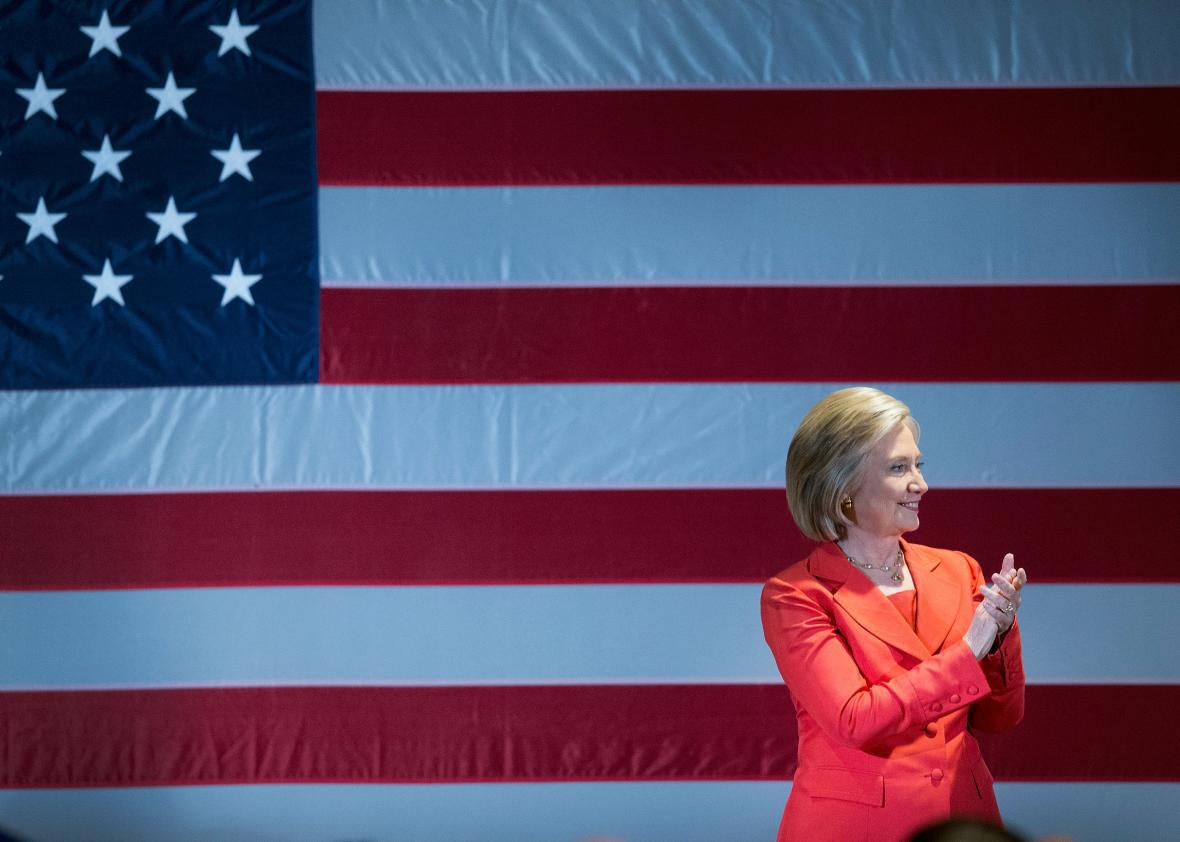Hillary Clinton is getting ready to unveil the next big plank of her economic platform this week, and it’s all about taxing investors. Specifically, short-term investors—the sort who buy up stock in a company, push it to shower money on shareholders, then sell off their holdings. And believe it or not, some powerful figures in finance might actually support the idea.
While Clinton isn’t spelling out her full plan until later this week, the Wall Street Journal revealed its broad strokes on Monday. In short, the proposal would change how the government taxes capital gains by creating “a sliding scale” in which those who hold onto their assets the longest pay the lowest rates to the IRS.
Currently, when Americans sell investments such as stocks or bonds that they have owned for less than a year, the government taxes the profits like any other income, at a top rate of 39.6 percent. If they own their investments for more than a year before cashing in, however, they pay the long-term capital gains rate, which maxes out at 23.8 percent.
If you stop and think about this for a second, it’s a little weird. According to our government, owning shares in a company for 364 days make you a short-term investor. But owning them for 366 days makes you a long-term investor. The divide is more or less arbitrary. Worse yet, a year isn’t really a very lengthy time to hold stock. So while the tax code penalizes day traders and high-speed hedge funds, for instance, it treats everybody else pretty the same.
In some people’s eyes, this has created a crisis of short-term thinking in corporate America, as CEOs focus on hitting their quarterly profit goals in order to appease equity owners who don’t plan on hanging around for particularly long. Many single out activist investors who have prodded companies to spend lavishly returning cash to shareholders through stock buybacks and dividends, rather than devote money to new factories or product lines, which might be better for their future prospects, as well as the economy’s. One especially prominent critic has been Larry Fink, the CEO of BlackRock, the world’s largest money manager, with more than $4 trillion in assets. This spring, he wrote an open letter to the CEOs of the companies included in the S&P 500, urging them to resist demands from activists to simply hand back money at the expense of long-term growth.
In his missive, Fink suggested that the government should reform the tax code so that the long-term capital gains rate only kicks in after three years, “then to decrease the tax rate for each year of ownership beyond that, potentially dropping to zero after 10 years. This would create a profound incentive for more long-term holdings and could be designed to be revenue neutral.”
Clinton’s plan is apparently somewhat similar, though not as dramatic. She reportedly wants to add at least one extra capital gains rate, so that people who sell their Apple stock or Treasury bonds after just two or three years would pay somewhere north of 28 percent on their returns. That way, the tax code would have a short-term, midterm, and long-term rate. The plan hasn’t been finalized yet, however, and could include more than three tiers.
As for how much money this would bring in for Washington, well, it’s not clear. Unless Clinton plans to lower the long-term rate below its current level, the proposal would almost certainly create some new revenue, largely from wealthy taxpayers, since they earn a disproportionate share of the nation’s capital income. But “the campaign didn’t estimate how much in additional taxes the proposal would raise,” the Journal reports. “The official said the primary goal is to change behavior, not increase revenue.”
But even though the details are still pending, the plan is of a piece with an emerging theme in Clinton’s economic philosophy, which I’ve been calling feel-good capitalism—the idea that the free market just needs a little nudge to work better for everybody. Last week, she unveiled her tax plan meant to encourage companies to share profits with their workers (underlying message: profits are good, but spread them around a bit, Mr. CEO). This week, it’s giving us a plan to hike capital gains taxes that, theoretically, one of the world’s most powerful investors might even like.
But if Larry Fink ends up feeling good about it, alas, progressives might be another matter.
